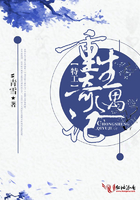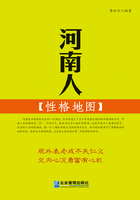`Queen Demeter, daughter of rich-haired Rhea, I will tell you the truth; for I greatly reverence and pity you in your grief for your trim-ankled daughter. None other of the deathless gods is to blame, but only cloud-gathering Zeus who gave her to Hades, her father's brother, to be called his buxom wife. And Hades seized her and took her loudly crying in his chariot down to his realm of mist and gloom. Yet, goddess, cease your loud lament and keep not vain anger unrelentingly: Aidoneus, the Ruler of Many, is no unfitting husband among the deathless gods for your child, being your own brother and born of the same stock: also, for honour, he has that third share which he received when division was made at the first, and is appointed lord of those among whom he dwells.'
(ll. 88-89) So he spake, and called to his horses: and at his chiding they quickly whirled the swift chariot along, like long-winged birds.
(ll. 90-112) But grief yet more terrible and savage came into the heart of Demeter, and thereafter she was so angered with the dark-clouded Son of Cronos that she avoided the gathering of the gods and high Olympus, and went to the towns and rich fields of men, disfiguring her form a long while. And no one of men or deep-bosomed women knew her when they saw her, until she came to the house of wise Celeus who then was lord of fragrant Eleusis.
Vexed in her dear heart, she sat near the wayside by the Maiden Well, from which the women of the place were used to draw water, in a shady place over which grew an olive shrub. And she was like an ancient woman who is cut off from childbearing and the gifts of garland-loving Aphrodite, like the nurses of king's children who deal justice, or like the house-keepers in their echoing halls. There the daughters of Celeus, son of Eleusis, saw her, as they were coming for easy-drawn water, to carry it in pitchers of bronze to their dear father's house: four were they and like goddesses in the flower of their girlhood, Callidice and Cleisidice and lovely Demo and Callithoe who was the eldest of them all. They knew her not, -- for the gods are not easily discerned by mortals -- but standing near by her spoke winged words:
(ll. 113-117) `Old mother, whence and who are you of folk born long ago? Why are you gone away from the city and do not draw near the houses? For there in the shady halls are women of just such age as you, and others younger; and they would welcome you both by word and by deed.'
(ll. 118-144) Thus they said. And she, that queen among goddesses answered them saying: `Hail, dear children, whosoever you are of woman-kind. I will tell you my story; for it is not unseemly that I should tell you truly what you ask. Doso is my name, for my stately mother gave it me. And now I am come from Crete over the sea's wide back, -- not willingly; but pirates brought be thence by force of strength against my liking.
Afterwards they put in with their swift craft to Thoricus, and there the women landed on the shore in full throng and the men likewise, and they began to make ready a meal by the stern-cables of the ship. But my heart craved not pleasant food, and I fled secretly across the dark country and escaped by masters, that they should not take me unpurchased across the sea, there to win a price for me. And so I wandered and am come here: and I know not at all what land this is or what people are in it. But may all those who dwell on Olympus give you husbands and birth of children as parents desire, so you take pity on me, maidens, and show me this clearly that I may learn, dear children, to the house of what man and woman I may go, to work for them cheerfully at such tasks as belong to a woman of my age. Well could I nurse a new born child, holding him in my arms, or keep house, or spread my masters' bed in a recess of the well-built chamber, or teach the women their work.'
(ll. 145-146) So said the goddess. And straightway the unwed maiden Callidice, goodliest in form of the daughters of Celeus, answered her and said:
(ll. 147-168) `Mother, what the gods send us, we mortals bear perforce, although we suffer; for they are much stronger than we.
But now I will teach you clearly, telling you the names of men who have great power and honour here and are chief among the people, guarding our city's coif of towers by their wisdom and true judgements: there is wise Triptolemus and Dioclus and Polyxeinus and blameless Eumolpus and Dolichus and our own brave father. All these have wives who manage in the house, and no one of them, so soon as she has seen you, would dishonour you and turn you from the house, but they will welcome you; for indeed you are godlike. But if you will, stay here; and we will go to our father's house and tell Metaneira, our deep-bosomed mother, all this matter fully, that she may bid you rather come to our home than search after the houses of others. She has an only son, late-born, who is being nursed in our well-built house, a child of many prayers and welcome: if you could bring him up until he reached the full measure of youth, any one of womankind who should see you would straightway envy you, such gifts would our mother give for his upbringing.'
(ll. 169-183) So she spake: and the goddess bowed her head in assent. And they filled their shining vessels with water and carried them off rejoicing. Quickly they came to their father's great house and straightway told their mother according as they had heard and seen. Then she bade them go with all speed and invite the stranger to come for a measureless hire. As hinds or heifers in spring time, when sated with pasture, bound about a meadow, so they, holding up the folds of their lovely garments, darted down the hollow path, and their hair like a crocus flower streamed about their shoulders. And they found the good goddess near the wayside where they had left her before, and led her to the house of their dear father. And she walked behind, distressed in her dear heart, with her head veiled and wearing a dark cloak which waved about the slender feet of the goddess.















